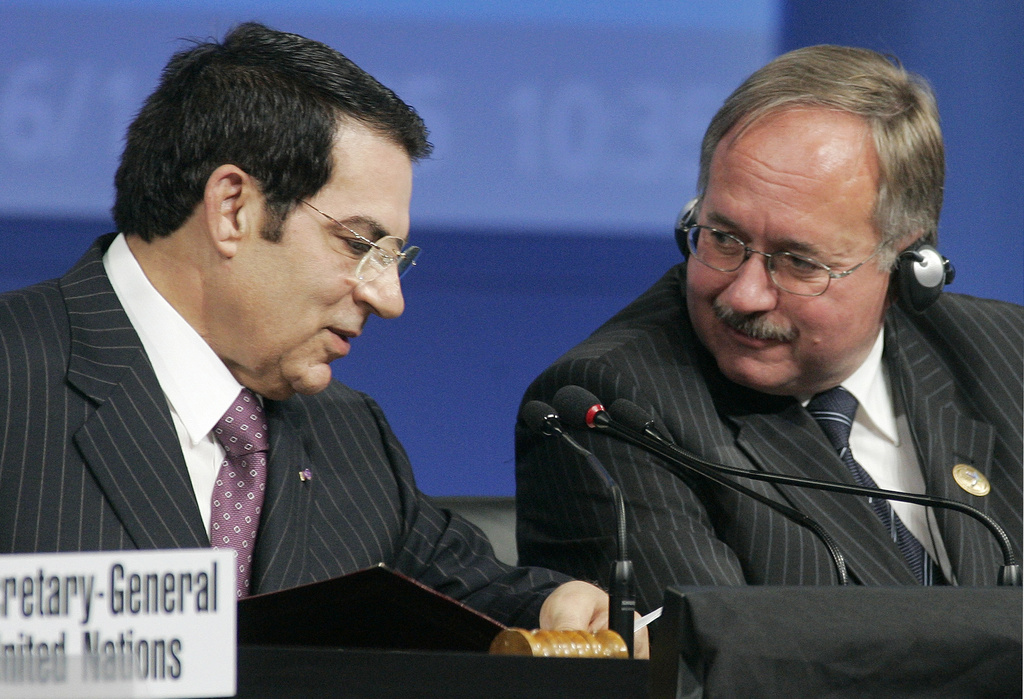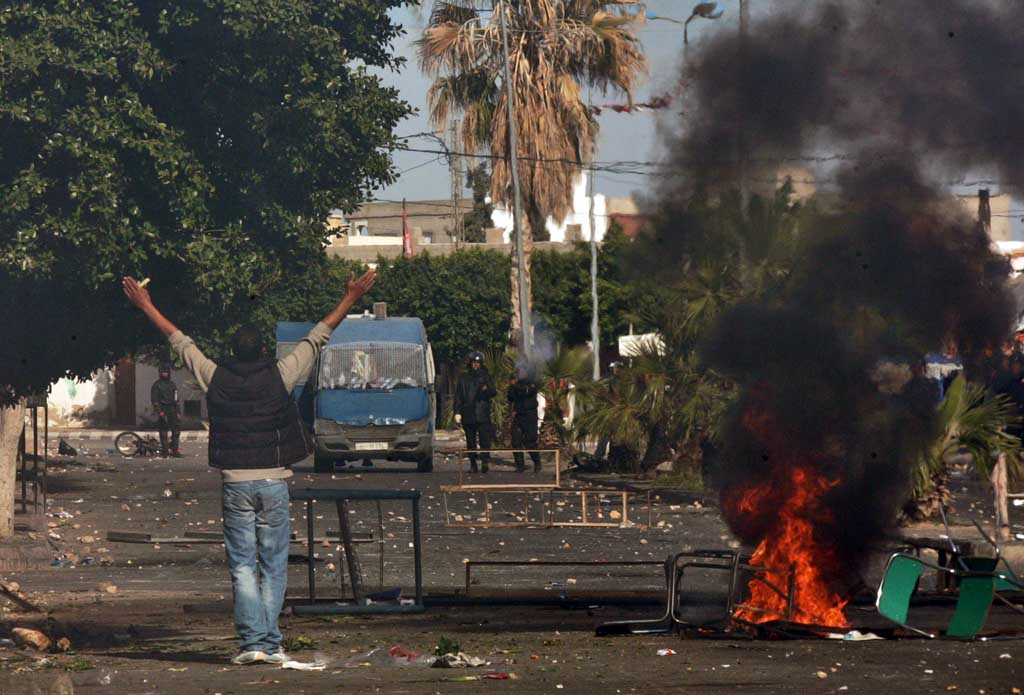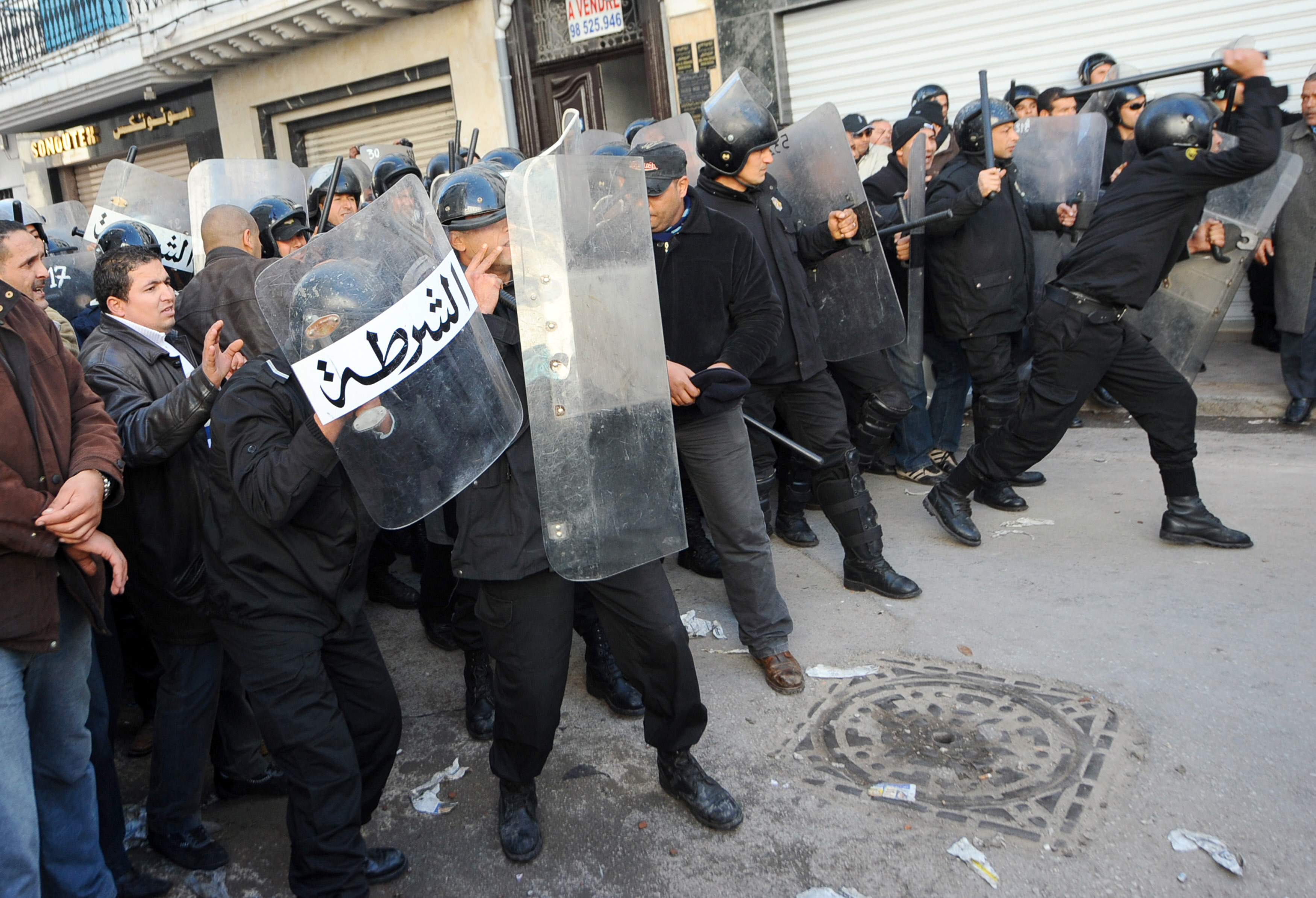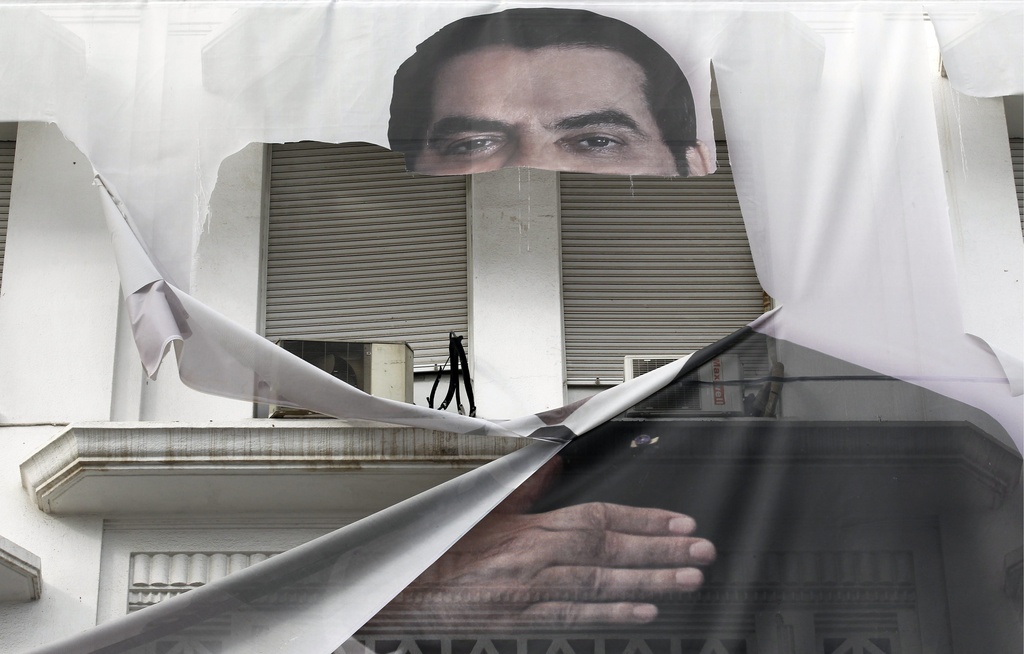Hope for thaw in Swiss-Tunisian ties

Swiss relations with Tunisia were somewhat cool during the regime of deposed president Zine al-Abidine Ben Ali, but there are hopes that chapter is now closed.
Former Swiss cabinet minister Samuel Schmid – himself subjected to Tunisian censorship for remarks on civil liberties during a world summit – told swissinfo.ch: “It naturally wasn’t an open and completely amicable relationship. I hope that will change now.”
Schmid’s criticism of authoritarian regimes catapulted Swiss-Tunisian bilateral relations to an all-time low after the World Summit on the Information Society in 2005. Ties have been strained ever since.
Since the departure of Ben Ali this week, Tunisia’s new leadership have been trying to bring some political stability to the country, putting together a coalition government and on Monday announcing plans to release all political prisoners.
“What has happened is to be expected with all regimes: freedom cannot be so controlled. Now we hope that Tunisia can be stabilised again without more bloodshed,” said Schmid.
The Swiss government has not yet commented on the political situation.
It describes bilateral relations with Tunisia as sometimes being “overshadowed by differing stances on respect for human rights”.
Tougher stance
Tellingly, for the five years from 1995 to 2000, Tunisia had no permanent ambassador in Bern. And while Swiss aid to the country topped SFr24 million ($24.8 million) in 1986, contributions dwindled to a minimum for education and flood relief during Ben Ali’s post-1987 regime.
But Switzerland could have been tougher on the Tunisian regime, according to Manon Schick of Amnesty International in Switzerland.
“In the end has Switzerland really done more than Germany, the Netherlands or Denmark, against the Ben Ali regime? Honestly, I don’t think so,” she told swissinfo.ch.
“It’s true that Switzerland was very strong with the speech by Samuel Schmid in Tunis in 2005, but at the same time, it also hosted that summit’s preparatory conference [in Geneva], and it was down to Switzerland more than other countries to highlight these issues.”
Low point
Ben Ali visited Geneva in 1995 as guest of honour at a session of the International Labour Organisation. Bern however did not officially welcome him. The foreign ministry played it down, saying he had not asked to make an official visit and “we did not schedule one”.
Around the same time, the Tunisian embassy in Bern reacted angrily to an article published in the Swiss 24 Heures newspaper about a Ben Ali opponent claiming to have been tortured.
But relations really plunged in 2005 when Tunisia hosted the World Summit on the Information Society. The summit took place in two parts, the first of which was in Switzerland. Ahead of the Tunis event, Swiss civil society groups said Tunisia was no place for a summit dealing with freedom of expression.
Days before the summit began, Tunisia filed a complaint with the Swiss government over comments made by its communications minister criticising Tunisia’s human rights record.
Then at the summit, Schmid – then holding the rotating post of Swiss president – used his opening speech to say that imprisoning people for their political beliefs was “frankly unacceptable”. Part of the speech was not aired on television.
The Swiss foreign ministry responded by summoning the Tunisian ambassador in Bern to complain about the treatment of the Swiss delegation.
“Unfriendly attitude”
But before the year was out, the row would escalate. In December Tunisia denounced the “unfriendly attitude” of Switzerland after Bern received four Tunisian human rights activists at the foreign ministry.
Such an official meeting with Ben Ali opponents was unprecedented in Europe. The foreign ministry explained that the meeting was “the expression of Switzerland’s interest” for the respect of human rights by all states that had signed international treaties.
Six months later the foreign ministry condemned the deportation of a Swiss human rights activist by Tunisia. Tunisia responded that they had “nothing to learn” from Switzerland in the area of human rights.
Refugees
Switzerland has been receiving political refugees from Tunisia since 1991 – perhaps a reflection of its stance on Tunisia’s political and human rights situation. There are now hundreds of Tunisian refugees living in Switzerland.
One refugee has been particularly vocal. Abdennacer Naït-Liman, granted political asylum in Switzerland in 1995, has accused the current head of the Tunisian senate, Abdallah Kallel, of torture.
Naït-Liman, who heads an association for Tunisian victims of torture, lodged a complaint with Geneva justice authorities in 2001 while Kallel – the-then Tunisian interior minister – was in the country undergoing medical treatment.
An initial inquiry into the torture allegations was opened by police but Kallel fled Switzerland the same day. The case is now with the European Court of Human Rights.
“Tunisia. Holiday in the sun, torture in the shadows,” commented Anouar Gharbi, coordinator of a support group for Tunisians that has filed a motion to freeze Ben Ali’s assets.
“I have the impression that before 2000 we weren’t really taken seriously in Switzerland. But when the Swiss started to realise that in Tunisia everyone was under threat [from the regime], people started to say ‘that’s becoming too much’.”
The Swiss attorney general has received two requests to freeze the assets deposited in Switzerland of deposed president Zine al-Abidine Ben Ali and his clan.
Spokesman Warlburga Bur said the motions were being examined. One was filed by Swiss lawyer Ridha Ajmi, who is calling for a criminal investigation and filed a motion that urgent measures be taken.
The association of Tunisians in Switzerland sent a letter to the Swiss cabinet on Saturday calling for the “immediate” freezing of assets of the former president. The Social Democrats have also called for a freeze.
The Swiss foreign ministry said it “reserved the right to take appropriate measures, including that of blocking such funds”.
However, Tunisia’s new leadership has not for the moment made an appeal to Bern regarding the funds. The country has not yet launched any criminal proceedings against Ben Ali, a condition for a request for judicial aid.
The clan of Ben Ali is believed to have fled Tunisia with 1.5 tons of gold (equal to around SFr60 million), according to Le Monde newspaper. The information was denied by the Tunisian central bank.
Switzerland’s relations with Tunisia evolved during the French colonial expansion in North Africa in the 19th century. In 1939, Switzerland opened a consulate in Tunis.
At that time, around 400 Swiss citizens were living in the country, mainly farmers, merchants, clerical workers and church representatives.
Between 1939 and 1943, Switzerland represented Italian interests in Tunisia. The Swiss consul guaranteed the protection of the 120,000-strong Italian colony and organised repatriations.
When Tunisia gained independence in 1956, Switzerland immediately recognised the new state and opened a Mission (which became an Embassy in 1961).
From 1957, Switzerland, in cooperation with the International Committee of the Red Cross, supported Algerian refugees in Tunisia.
Economic relations were boosted by a free trade treaty signed in 2004 between the European Free Trade Association and Tunisia. A number of Swiss companies are active in Tunisia, particularly in the textiles, clothing and food sectors.
Around 1,215 Swiss live in the country, of a total population of 10.3 million.
Swiss exports in 2009 were SFr209 million (up 45% on 2008). Imports were SFr27.4 million (up 20%).
(Source: Swiss foreign ministry)
(With input from Christian Raaflaub and Marc-André Miserez)

In compliance with the JTI standards
More: SWI swissinfo.ch certified by the Journalism Trust Initiative





You can find an overview of ongoing debates with our journalists here. Please join us!
If you want to start a conversation about a topic raised in this article or want to report factual errors, email us at english@swissinfo.ch.